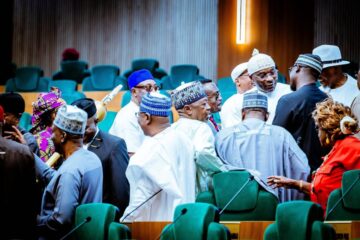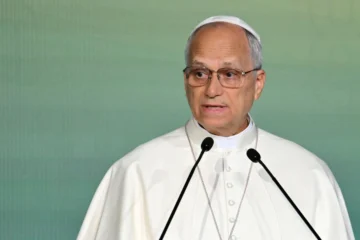ICPC confirms arrest of NAHCON officials over FG’s N90bn hajj subsidy

Pilgrims departing Nigeria for hajj
The Independent Corrupt Practices and Other Related Offences Commission (ICPC) has confirmed an ongoing investigation of the National Hajj Commission of Nigeria (NAHCON) over the N90 billion hajj subsidy.
ICPC spokesperson, Demola Bakare, told TheCable that some NAHCON officials were arrested by the commission on Wednesday for “refusing to honour an invitation” by the anti-graft agency.
Bakare refuted reports that NAHCON’s office was shut down by the ICPC, emphasising that the commission operates within legal boundaries.
He declined to name the arrested officials, noting that they were assisting the commission with useful information.
“We are investigating officials of the National Hajj Commission because they either failed or refused to honour the invitation. We therefore paid them a friendly visit,” he said.
“We didn’t shut down the commission as reported by some journalists. ICPC operates within the confines of the law.
“Officials arrested, which I can’t name, were released on bail and would henceforth be helping the investigation process until concluded.”
Fatimah Usara, NAHCON’s spokesperson, said it was not unusual for officials to be queried after hajj operations.
“Some of the commission’s relevant staff had been making presentations to the ICPC when demanded,” she said.
“And this is a thing that the commission considers normal because it happens after every hajj until any doubt is cleared. It’s nothing new.
“The Head of Procurement had an invitation which he didn’t honour so two days ago, on Wednesday precisely, the ICPC sent the relevant officers to him, him alone.
“In fact, NAHCON accommodated them to wait for him to report to work, which they did. And when he came, they left together. No one entered any office at all. They waited outside.”
In July, Jalal Arabi, NAHCON’s chairman, said the N90 billion fund approved by President Bola Tinubu for 2024 hajj was used to subsidise pilgrim’s fare.
In the same month, the chairman was invited by the Economic and Financial Crimes Commission (EFCC) over investigations into the approved fund.











